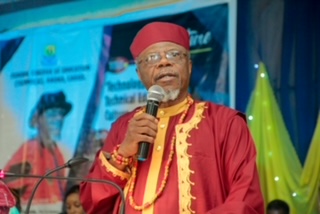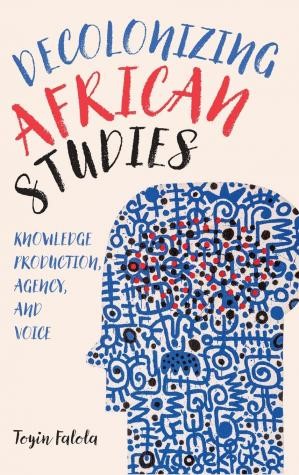A Thumbnail Review
By Oluwatoyin Vincent Adepoju
“Exploring Every Corner of the Cosmos in Search of Knowledge”
Having at last got my hands on Toyin Falola’s Decolonizing African Studies: Knowledge Production, Agency, and Voice, University of Rochester Press, 2022, I did a very fast speed reading of the book of 678 pages and careful exposition and argument, in order to discern it’s flavour, scope and thrust. An exercise of perhaps one hour, with the intention of returning later to more careful reading.
The book demonstrates Falola as a master of the protocols of writing a generally accessible academic book which is yet summative of the field in question, engaging significantly with its constitutive ideas. On account of the sheer scope of the work in terms of its sweeping coverage of practically every aspect of the subject, and its analytical range, the extensiveness of its engagement with the relevant issues and ideas in almost every aspect of African Studies, anyone who wants to gain an overview of the subject in depth is likely to find this book indispensable.
The book is written in terms of a combination of logical rigour and expressive accessibility, so that practically anyone can read it with benefit, from the undergraduate, to anyone new to the subject, to the advanced scholar in the field. The person new to the field will be introduced to its relevance, ideational scope, historical progression and the role of particular figures in the subject, across time and space. Such readers will also benefit from the summaries that conclude every chapter.
The advanced scholar in the field will encounter a multidisciplinary expansiveness that takes in practically every aspect of the humanities and social sciences, addressing these in terms of ideational detail, historical specificity and flow and analyses of the contributions of key figures, across practically all disciplines in African Studies except the sciences.
It would be great if Falola were also to go in more depth into similar issues in relation to the sciences in the African context, a task possible even if one has little background in science, since history and philosophy of science are quite accessible to all readers. Along those lines, the work of Aime Dafon Segla, Ron Eglash, Abdul Karim Bangura and Gloria Emeagwali, among other sources, could be very helpful. If Falola has addressed the sciences as a part of African Studies in depth in this or other texts, I apologize for my omission or misinformedness.
Along similar lines, one might take exception to aspects of Falola’s approach, envisaging variations of how the task of the book may be performed, such as his not seeming to discuss Isidore Okpewho’s pioneering work in African epic, even though African epic is engaged significantly in the text, complementing Falola’s co-edited cutting edge book on African orature published recently.

Decolonizing African Studies also seems not to contain one of the best things I have read from Falola, the essay ”Ritual Archives”, on the same subject as that of the book, and does not seem to have the compelling ”Pluriversalism, ” on the same subject, these two superb pieces, showing Falola at his individualistic best, written in the depth of adventurous ruminations, published in The Toyin Falola Reader. Apologies if I missed their presence in this book.
Such differences of perspective on how a project such as this book should be executed are part of the circumstances that frame any human project, talk less a work of such multidisciplinary range, ideational scope, and historical sweep. As it is, this work, like Falola”s entire career, is an example of colossal ambition and drive, suggesting what can be done by an adequately determined person. The sheer level of reading demonstrated, the vastness of historical and ideational range covered, makes the text encyclopedic of its subject, such that, like some other books of Falola’s, if this were the only text he published, as an important landmark in the field, the work would permanently place his name in the record of the development of the field in question.



